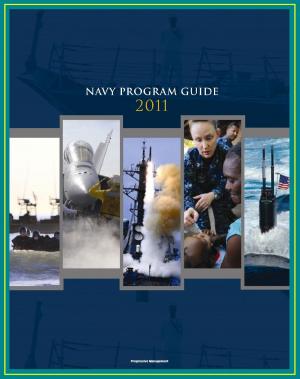A Doctrine Reader: The Navies of United States, Great Britain, France, Italy, and Spain - Doctrine and Fleet Tactics in the Royal Navy, Paradigm Shifts and Doctrine, Naval Doctrine Command
Nonfiction, History, Military, Naval, United States| Author: | Progressive Management | ISBN: | 9781311390899 |
| Publisher: | Progressive Management | Publication: | May 14, 2016 |
| Imprint: | Smashwords Edition | Language: | English |
| Author: | Progressive Management |
| ISBN: | 9781311390899 |
| Publisher: | Progressive Management |
| Publication: | May 14, 2016 |
| Imprint: | Smashwords Edition |
| Language: | English |
Professionally converted for accurate flowing-text e-book format reproduction, this unique book informs us that naval and navy doctrine is not new and there is value today in reviewing the lessons of past doctrinal development experiences.
Under the leadership of the Naval Doctrine Command's first commander, Rear Admiral Frederick Lewis, U.S. Navy, the Command set out to examine history to learn the lessons of naval doctrine development from the past. This effort was not an attempt to publish history, as such. Instead, it was directed primarily as a study of history from the perspective of doctrine—a term generally not found in the index pages of naval historical studies. Our own navy and four European navies were selected for in-depth analysis, primarily because the history of these navies is well-documented and it was relatively easy to find the evidence of past doctrinal development once researchers became familiar with the concept.
Newport Paper Number Nine contains the results of research conducted on the navies of the United States, Great Britain, France, Italy, and Spain. Each has a unique story to tell, and each story has value for us today. This paper concludes with an interpretive essay on the relationship of doctrine to technology, particularly revolutions in military affairs (RMAs). It questions the ground forces-oriented RMA paradigm and makes a strong case for the uniqueness of naval warfare.
Professionally converted for accurate flowing-text e-book format reproduction, this unique book informs us that naval and navy doctrine is not new and there is value today in reviewing the lessons of past doctrinal development experiences.
Under the leadership of the Naval Doctrine Command's first commander, Rear Admiral Frederick Lewis, U.S. Navy, the Command set out to examine history to learn the lessons of naval doctrine development from the past. This effort was not an attempt to publish history, as such. Instead, it was directed primarily as a study of history from the perspective of doctrine—a term generally not found in the index pages of naval historical studies. Our own navy and four European navies were selected for in-depth analysis, primarily because the history of these navies is well-documented and it was relatively easy to find the evidence of past doctrinal development once researchers became familiar with the concept.
Newport Paper Number Nine contains the results of research conducted on the navies of the United States, Great Britain, France, Italy, and Spain. Each has a unique story to tell, and each story has value for us today. This paper concludes with an interpretive essay on the relationship of doctrine to technology, particularly revolutions in military affairs (RMAs). It questions the ground forces-oriented RMA paradigm and makes a strong case for the uniqueness of naval warfare.















